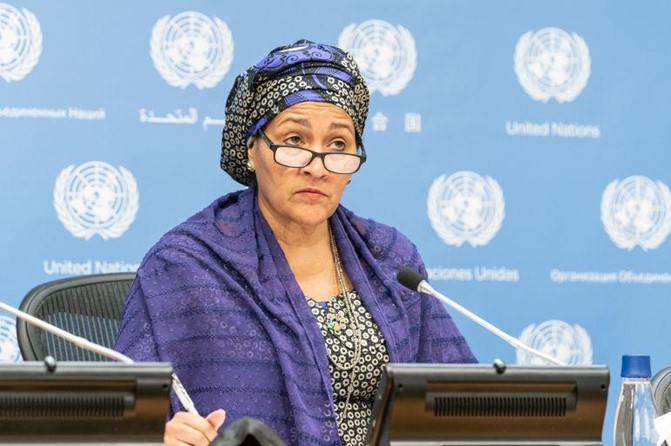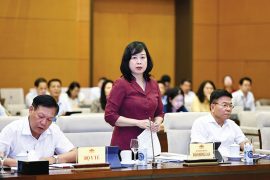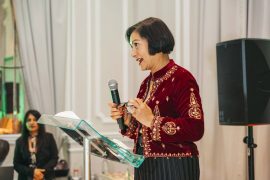Following a UN delegation, who held talks with senior Taliban officials in Afghanistan, there’s been headway on women’s rights, the UN Deputy Secretary-General Amina Mohammed said, cautioning that much remains to be achieved.
The high-level conference was held amid intense criticism of the Taliban government for banning women from NGOs and universities last month. Millions of high school girls have already been kept inside their homes while schools have been closed. Since seizing control of the country in August 2021 due to the fall of the Western-backed government, the Taliban has broken their promises about women’s rights and media freedom.
“There has been some progress. Some exemptions have been made to the mandates that have covered the health sector,” Mohammed, who led the delegation, said, referring to the resumption of work by three NGOs last week.
“I think that’s because the international community, and particularly the partners who are funding this, were able to show the implications and the impact of the woman-to-woman services, particularly childbirth,” she added.
Not enough, she said, adding that was just the very beginning. “We’ve opened up a crack, and we hope that through the reversals, we can eventually get to a stage where you neutralise those edicts and women are back in school and girls and, of course, in the workplace.”
The 61-year-old UN diplomat said her delegation met with cabinet members, including the foreign minister, deputy prime minister and minister of refugees and returnees. The group also met the governor of Kandahar and the Shura (leadership council) responsible for making many critical decisions in the country.
“I was always obvious that I was going there as an opportunity to air the voices of Afghan women. We heard from young women who said, ‘We do not need your voice; what we need is you amplify ours,'” Mohammed told Al Jazeera in an interview.
“I was very focused on getting those messages across.”
Mohammed, the UN’s top-ranking female official, described the current laws on women’s education and workplace as an “aberration” to the teachings of Islam but emphasised the need to engage with the Taliban.
“It’s very important to go in there and try to have a conversation with them, and they did,” she added.
Last week, UN Secretary-General Antonio Guterres denounced the “unprecedented, systemic attacks on women’s and girls’ rights”, which he said “are creating gender-based apartheid”.
Abdul Qahar Balkhi, the spokesman for the Taliban’s Ministry of Foreign Affairs, said some NGOs were trying to create what he called ‘social change’ in Afghanistan.
But he says the Taliban allows organisations to operate if they align with the country’s values.
Those NGOs committed to the “cardinal principle of NGO work [such as] impartiality and neutrality” were given exemptions in some areas, including health, Balkhi told the press recently.





Comments are closed.